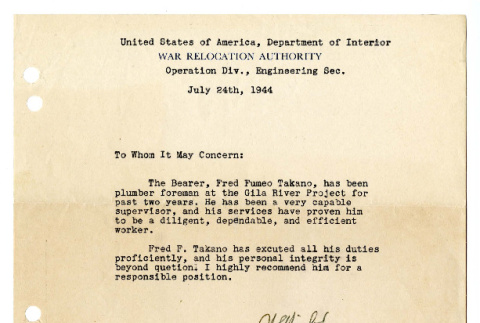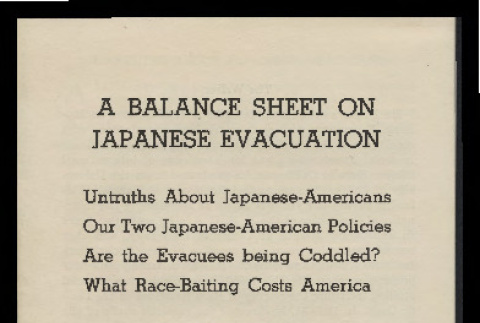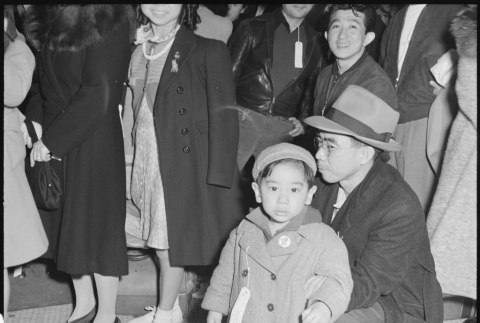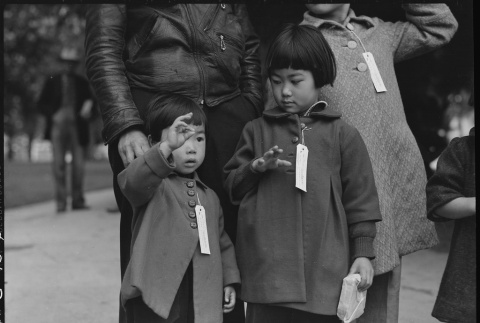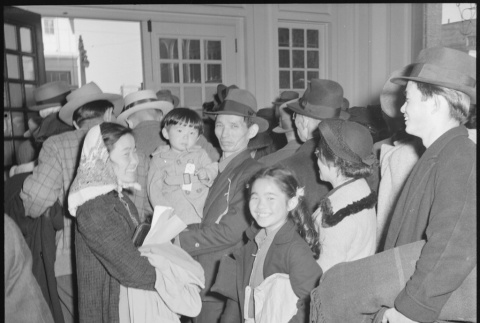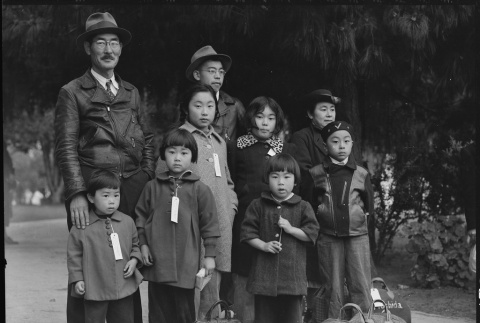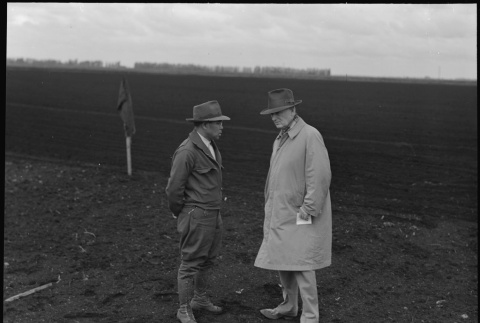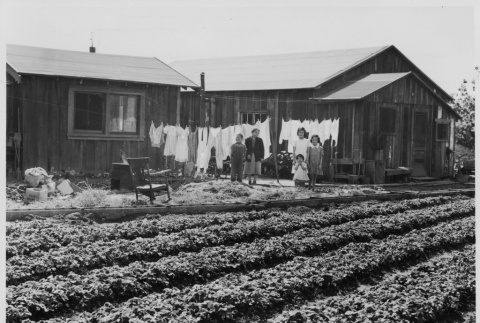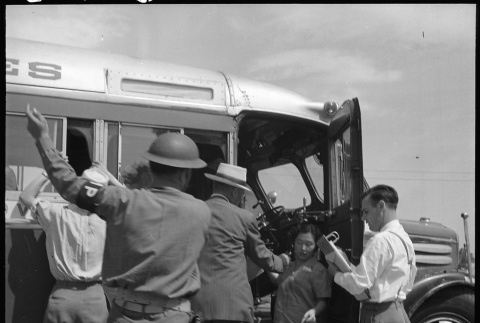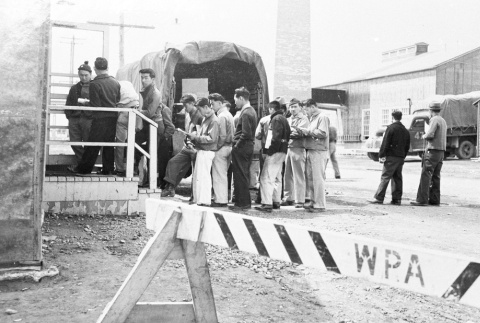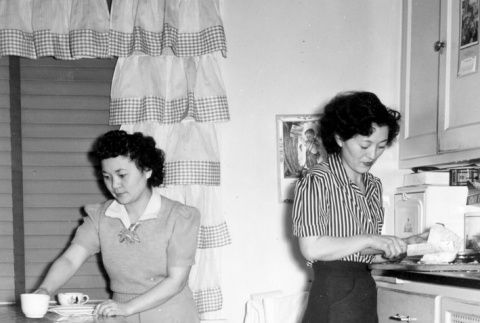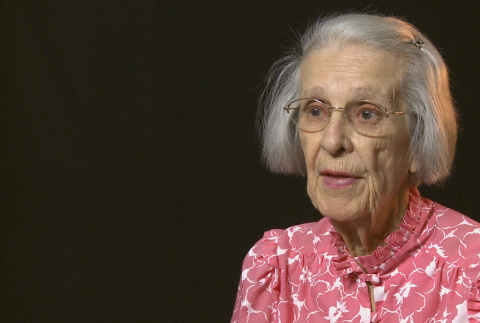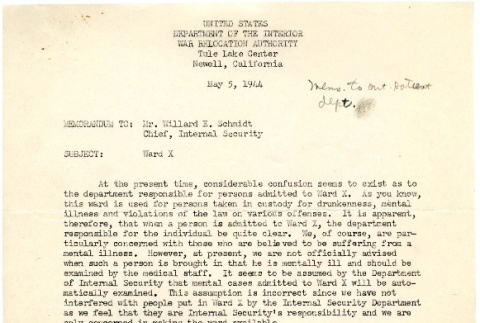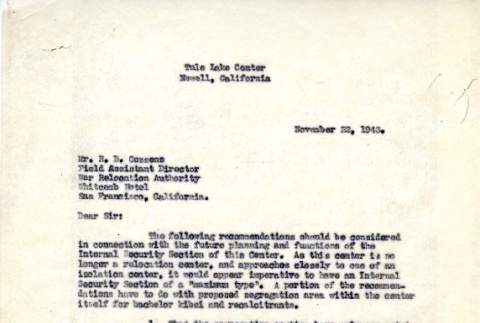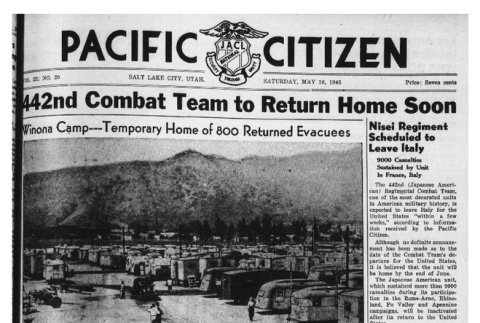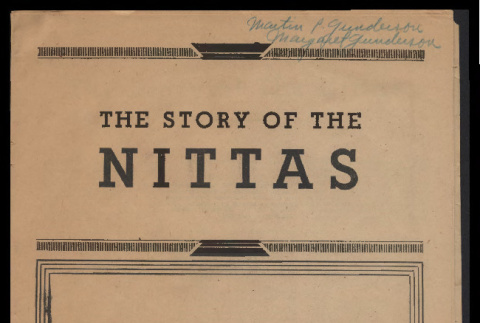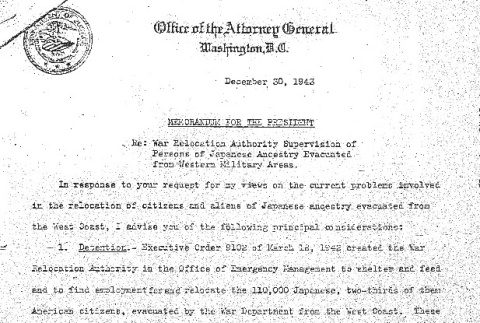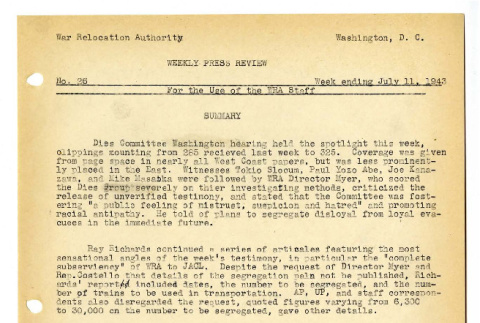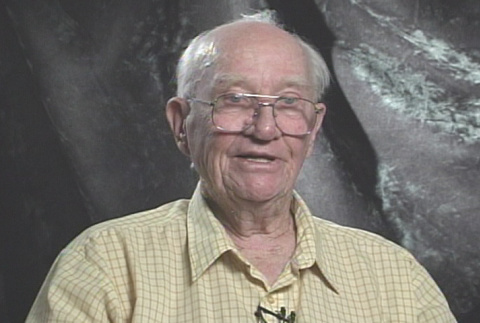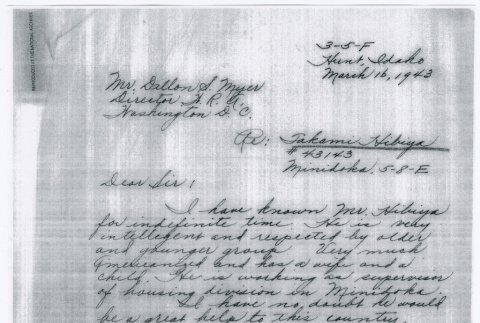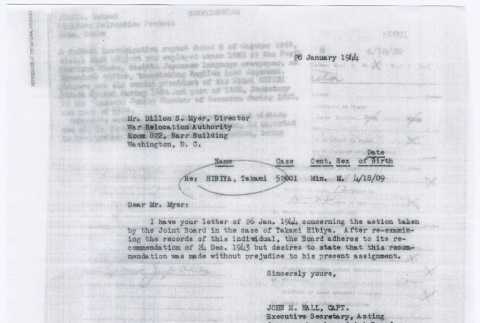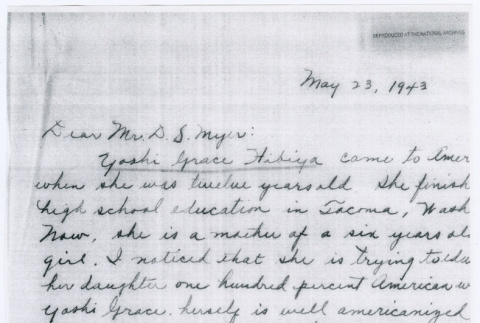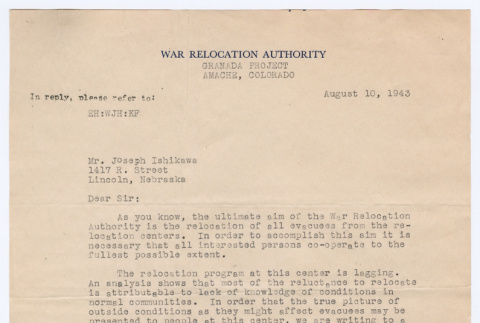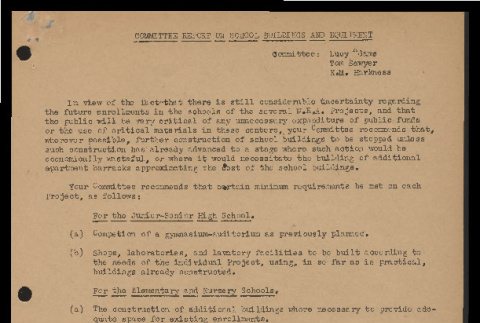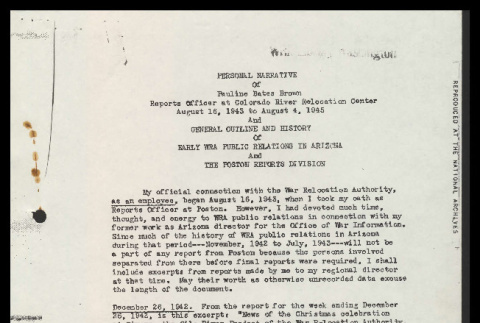1506 items
1506 items
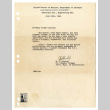
doc
Letter from W. S. Hislop, Sr. Plumber Foreman, Ass't. Supt. of Construction, Operation Division, Engineering Section, War Relocation Authority, United States of America Department of Interior, July 24, 1944 (ddr-csujad-42-100)
A reference letter regarding Fumio Fred Takano. It is written by W. S. Hislop, Sr. Plumber Foreman, Assistant Superintendent of Construction, Operation Division, Engineering Section, War Relocation Authority, United States of America Department of Interior. See this object in the California State Universities Japanese American Digitization project site: tak_01_51_002
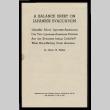
doc
Balance sheet of Japanese evacuation: untruths about Japanese-Americans our two Japanese-American policies are the evacuees being coddled?: what race-baiting costs America (ddr-csujad-55-355)
Pamphlet reporting on and critiquing common misconceptions about Japanese Americans, the incarceration, government policy, and the War Relocation Authority. Reprinted from the Christian Century August 18 and 25, and September 1 and 8, 1943. See this object in the California State Universities Japanese American Digitization project site: sac_jaac_0357
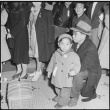
img
Japanese American family waiting for the bus (ddr-densho-151-106)
Original caption: San Francisco, California. The family unit in kept intact in various phases of evacuation of persons of Japanese ancestry. ...A view at Wartime Civil Control Administration station, 2020 Van Ness Avenue, on April 6, 1942, when first group of 664 was evacuated from San Francisco. The family unit likewise is preserved in War Relocation …
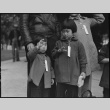
img
Children wearing "evacuation tags" (ddr-densho-151-450)
Original caption: Hayward, California. Two children of the Mochida family who, with their parents are awaiting evacuation bus. The youngster on the right holds a sandwich given her by one of a group of women who were present from a local church. The family unit is kept intact during evacuation and at War Relocation Authority centers …
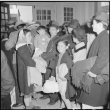
img
Japanese American family waiting for the bus (ddr-densho-151-107)
Original caption: San Francisco, California. The family unit is kept intact in various phases of evacuation of persons of Japanese ancestry. ...A view at Wartime Civil Contril Administration station, 2020 Van Ness Avenue, on April 6, 1942, when first group of 664 was evacuated from San Francisco. The family unit likewise is preserved at War Relocation …
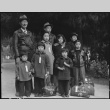
img
Family during mass removal (ddr-densho-151-39)
Original WRA caption: Hayward, California. Members of the Mochida family awaiting evacuation bus. Identification tags are used to aid in keeping the family unit intact during all phases of evacuation. Mochida operated a nursery and five greenhouses on a two-acre site in Eden Township. He raised snapdragons and sweet peas. Evacuees of Japanese ancestry will be …
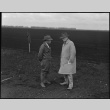
img
Japanese American farmer talking with land owner (ddr-densho-151-88)
Original caption: Stockton, California. Henry T. Futamachi (left), superintendant of a 1300-acre mechanized ranch, discusses agricultural problems with the ranch owner, John B. MacKinley. Before evacuation of persons of Japanese ancestry, Futamachi, 45, was paid $4000 a year and bonuses. He came to this country 28 years ago with his father. Evacuees will be housed in …
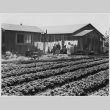
img
Japanese American family prior to mass removal (ddr-densho-151-86)
Original caption: Mountain View, California. This ranch house, seen across a strawberry bed, is typical in many California rural sections where residents of Japanese ancestry engaged in truck gardening. This was the home of eight children who were born in this country. The parents were born in Japan. This family, and other evacuees, will be housed …
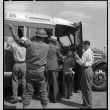
img
Assembly center new arrivals (ddr-densho-151-72)
Original WRA caption: Stockton, California. Evacuees of Japanese ancestry arriving at this Assembly center. Their identification numbers and family groups are checked by officials as they leave the buses. After their baggage has been checked for contraband, they will be given a preliminary medical examination and directed to their places in the barracks to await transfer …
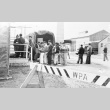
Collection
National Archives and Records Administration Collection (ddr-densho-37)
The National Archives and Records Administration collection, 1940s, primarily focuses on the ten War Relocation Authority camps. The collection also documents the exploits of Nisei soldiers who served with the 100th Infantry Battalion, the 442nd Regimental Combat Team, the 522nd Field Artillery Battalion, and the Military Intelligence Service.

Collection
Kaneko Collection (ddr-densho-7)
The Kaneko collection, 1944, consists of War Relocation Authority (WRA) resettlement photographs of the Kaneko and Isoda families. The two families relocated to Milwaukee, Wisconsin, during World War II, and the WRA photographed their home and daily activities. The pictures were accompanied by captions worded in a positive manner to encourage Japanese Americans to leave the …

vh
Catherine Embree Harris Interview (ddr-densho-1000-315)
White female. Born October 30, 1919. Grew up in Honolulu, Hawaii, before World War II. After college, took a job with the Office of Indian Affairs, and went to work at the Poston concentration camp, Arizona. After the war, continued to work for the War Relocation Authority and then other agencies.
(This material is based upon …
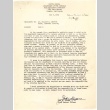
doc
Memo from Jack C. Sleath, M. D., Chief Medical Officer, War Relocation Authority, to Willard E. Schmidt, Chief, Internal Security, May 5, 1944 (ddr-csujad-2-101)
Memo regarding Ward X. Discusses need for determining who is responsible for people in custody in the ward, used for "drunkenness, mental illness and violations of the law on various offenses;" of particular concern is responsibility for people who are believed to be mentally ill. See this object in the California State Universities Japanese American Digitization …
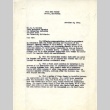
doc
Letter from Willard E. Schmidt, National Chief of Internal Security, to R. B. Cozzens, Field Assistant Director, War Relocation Authority, November 22, 1943 (ddr-csujad-2-90)
Contains recommendations for future planning and functions of the Internal Security Section of the Tule Lake incarceration camp, including for a segregation area for "bachelor Kibei and recalcitrants" and detailing needs for personnel, equipment, and security procedures; letter calls for the camp to be considered "maximum type" given that it has become more of an isolation …
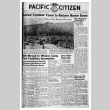
doc
The Pacific Citizen, Vol. 22 No. 20 (May 18, 1946) (ddr-pc-18-20)
Selected article titles: "442nd Combat Team to Return Home Soon. Nisei Regiment Scheduled to Leave Italy. 9000 Casualties Sustained by Unit in France, Italy" (p. 1), "800 Moved to Winona Camp Find Facilities Incomplete. Los Angeles County Sets Up Emergency Kitchens to Feed Distressed Evacuee Group" (p. 1), "Army Assigns Nisei to War Crimes Trial" (p. …
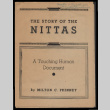
doc
Story of the Nittas (ddr-csujad-55-342)
Pamphlet on the story of the Nitta family during World War II. Covers the Nitta's "evacuation", incarceration at Poston, and "resettlement." From verso, "Reprinted from NOW, through co-operation with the Congregational Committee on Christian Democracy from original manuscript supplied by the Reports Division of the War Relocation Authority, Los Angeles, July, 1945." See this object in …
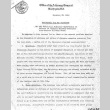
doc
Memo to President Roosevelt from Francis Biddle (ddr-densho-67-88)
Memo to President Roosevelt from Francis Biddle regarding resettlement. Pg 1: Biddle discusses the current resettlement situation and suggests that anti-Japanese press is impeding relocation. Pg 2: Biddle discusses the negative portrayal of the War Relocation Authority (WRA), especially from the Tule Lake riots and the alleged coddling of evacuees. Pg 3: Discusses political problems of …
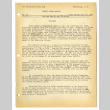
doc
Weekly Press Review, No. 26, July 11, 1943 (ddr-csujad-19-69)
Survey by the War Relocation Authority "for use of the WRA Staff" of press activity, including stories published; clippings received and the work of clipping services; reporting from visits to "relocation centers"; summaries of editorial opinion and of "public attitudes" as reflected the work of columnists and in articles, letters to the editor, and reports during …
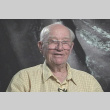
vh
Charles Olds Interview (ddr-densho-1000-121)
White male. Born 1913 in Karuizawa, Japan, to missionary parents. Attended Canadian school in Kobe, Japan, before coming to the United States with his older brother. He attended the University of Chicago School of Social Work, then volunteered to work for the War Relocation Authority (WRA). He later worked as a relocation officer in the concentration …
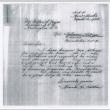
doc
Takami Hibiya reference letter (ddr-densho-381-142)
A reference letter from Frank H. Hattori to Dillon S. Myer about Takami Hibiya. Hattori mentions Takami's work in the housing division at Minidoka and states that he is "very much Americanized."
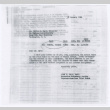
doc
Letter from Captain John Hall to Dillon S. Myer regarding Takami Hibiya's leave clearance (ddr-densho-381-146)
Captain John M. Hall writes to Dillon S. Myer in response to an earlier letter asking for clarification on Takami Hibiya's suspended leave clearance.
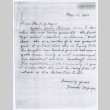
doc
Yoshi Hibiya reference letter (ddr-densho-381-172)
A letter from Hisashi Hagiya to Dillon S. Meyer attesting to Yoshi Hibiya's successful efforts to "Americanize" her daughter and herself.
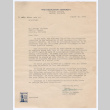
doc
Letter from Willis Hanson to Joseph Ishikawa (ddr-densho-468-129)
Request for information about Ishikawa's experience with war relocation program
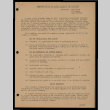
doc
Committee report on school buildings and equipment (ddr-csujad-55-1729)
Report and recommendations on school buildings and equipment at Poston incarceration camp. Covers Junior-Senior high school, elementary school, and nursery schools. See this object in the California State Universities Japanese American Digitization project site: sac_jaac_1731
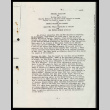
doc
Personal narrative of Pauline Bates Brown, Reports Officer at Colorado River Relocation Center, August 16, 1943 to August 4, 1945 and general outline and history of early war public relations in Arizona and the Poston Reports Division (ddr-csujad-55-1855)
Narrative describing public relations activities of the War Relocation Authority in Arizona and at Poston incarceration camp between August 1943 and August 1945. Includes mentions of press releases, news, history and activities of the WRA Reports Division at Poston, the Poston Chronicle, photo shop, official reports, and events. See this object in the California State Universities …
